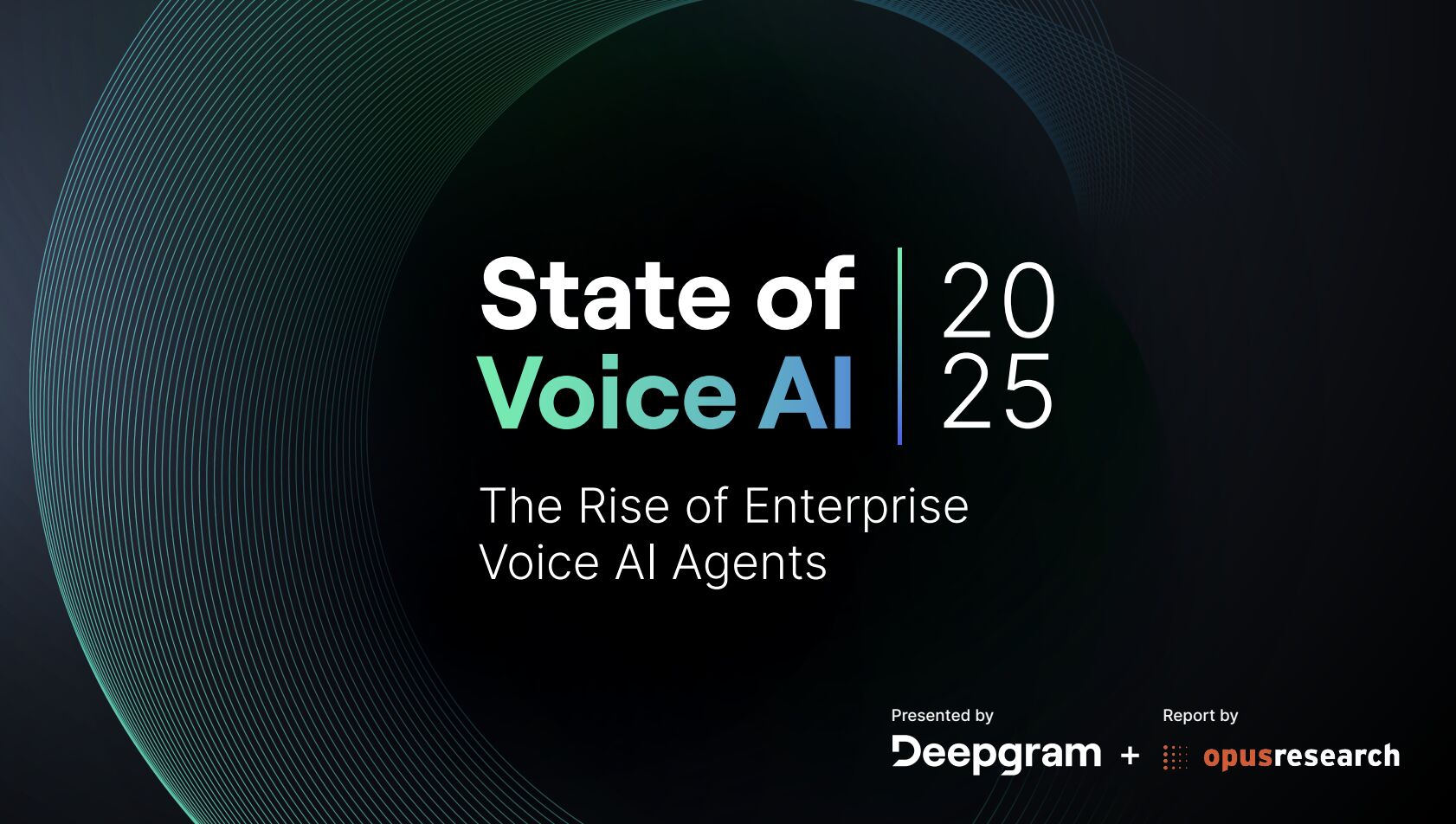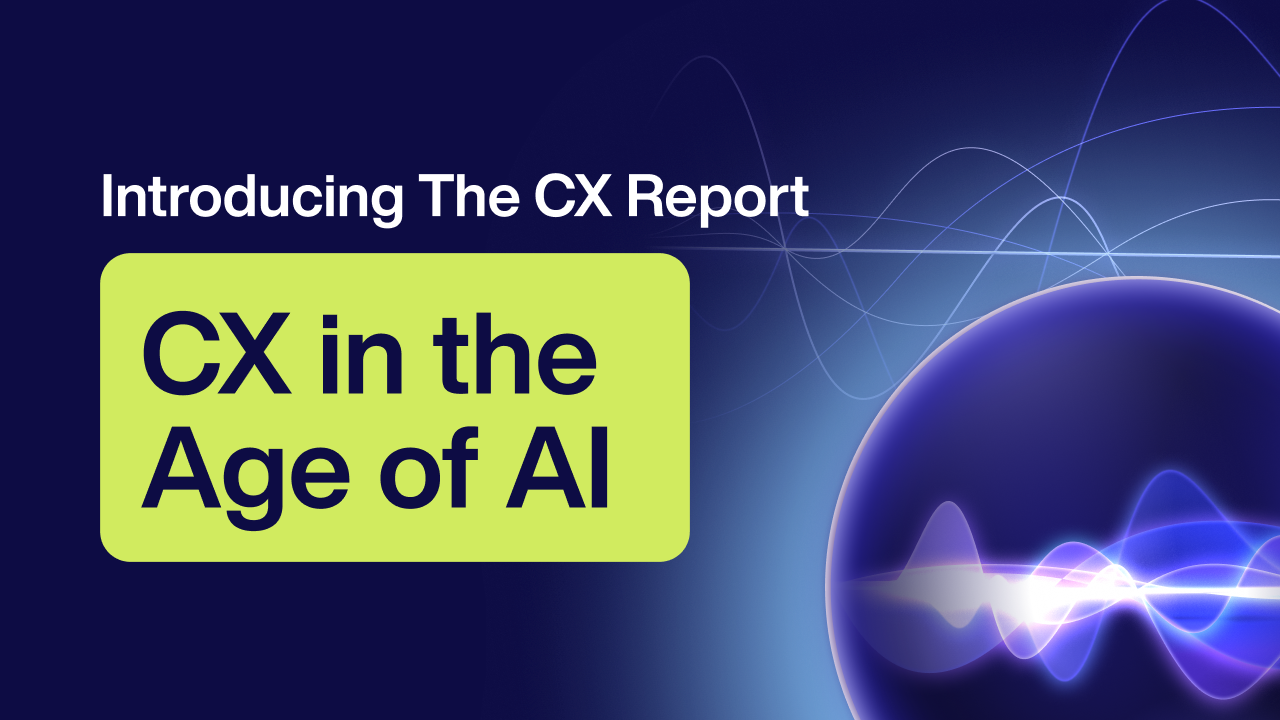The Landscape of Ai in 2025. It's not what you're hearing.

I. The Rise of Hybrid Customer Experience: AI and Human Synergy
A central theme emerging from both sources is the shift towards a hybrid customer experience (CX) model, where AI and human agents work in tandem to deliver seamless and intelligent interactions. This is not about AI replacing humans, but rather enhancing their capabilities and allowing them to focus on more complex, empathetic tasks.
- AI for Efficiency and Routine Tasks: AI is poised to handle a growing volume of routine, repetitive customer inquiries, freeing up human agents. As Sarah Martinez, VP of CX Strategy at EGS, explains, "AI handles account balances, transaction history, password resets - all the routine stuff that frankly, customers prefer to get done quickly." Similarly, in logistics, "Where's my shipment?" is "perfect for AI."
- Humans for Complexity and Empathy: Complex, sensitive, or high-stakes issues will increasingly be handled by human agents, whose expertise and emotional intelligence remain irreplaceable. Martinez highlights, "My shipment was damaged and it contained medical supplies for a hospital' - that needs a skilled agent immediately." In banking, "when someone calls about a suspicious charge or needs help with a major financial decision, they get connected to a real person."
- Intelligent Routing and Context Preservation: Effective hybrid CX relies on sophisticated systems that not only route calls but also build and preserve context. EGS describes this as "intelligent routing with context preservation," where AI can "pull shipping details, identified the hospital client, flagged the medical nature of the cargo, and connected the caller to an agent who specializes in healthcare logistics with authority to make immediate decisions." This ensures that when a human agent takes over, they are fully informed and can provide immediate, relevant support.
- Enhanced Agent Satisfaction: A well-implemented hybrid model can significantly improve agent satisfaction. Martinez notes, "if your agents are spending their time on genuinely complex, engaging problems instead of repeating the same basic information fifty times a day, they're happier and more effective." This shifts agents from repetitive tasks to more meaningful problem-solving.
II. Economic Pressures and Consumer Behavior Shifts
Economic uncertainty will continue to shape consumer spending habits and expectations, prompting brands to adapt their strategies.
- Price Consciousness and Value-Driven Decisions: "Economic conditions will remain tough for many consumers," leading to increased price consciousness. Consumers will "buy smart rather than buy by impulse." This drives a need for brands to "help them manage their budgets and make smarter purchasing decisions."
- AI-Guided Purchasing: AI will play a significant role in assisting price-conscious consumers. Amazon's Rufus, for example, is highlighted for its ability to help consumers ask questions like "what is the best deal on cordless vacuums today?" or "when is the best time to buy a TV on Amazon?"
- Shift to Cost-Saving Alternatives: A decrease in spending on non-essential services like food delivery is anticipated, with consumers turning to alternatives such as home cooking or in-store pickup, leading grocery stores to promote "more ready-to-eat options" and invest in "in-store shopping technology for personalization and convenience."
III. The Evolving Digital Landscape: Search, Marketing, and Data
The traditional digital ecosystem is undergoing a fundamental transformation, particularly in how consumers discover information and how brands engage with them.
- Generative AI's Impact on Discovery and Search: Generative AI is fundamentally changing how consumers "discover and purchase products as well as how they find information and get answers to their questions." Traditional search engine journeys are being bypassed, with consumers turning to platforms like Amazon and TikTok for recommendations.
- The "Answer Economy": Tifenn Dano Kwan of Amplitude predicts the "rise of the answer economy," where "traditional search engines will no longer be the default way people get information." Consumers expect "instant gratification of asking AI anything and getting an immediate response," leading to a shift from Search Engine Optimization (SEO) to "generative engine optimization."
- Brand Visibility Challenges: Adrien Menard of Botify highlights the challenge for brands as consumer behavior shifts "from predominantly Google-first searches to emerging players like Perplexity and ChatGPT Search." This necessitates new "governance strategies to manage AI bots’ role in driving brand visibility."
- Resurgence of Organic Brand Marketing: With digital marketing channels becoming "more saturated, expensive, and subject to algorithmic changes," brands will "shift focus back to organic marketing to reduce reliance on paid channels." This includes "authentic, grassroots community-building strategies—such as user-generated content, influencer partnerships, and SEO-driven content."
- Authenticity Amidst AI Saturation: Justin Crowe notes a coming "wave of saturation in ads that share the same ‘AI flavor’—polished visuals, compelling copy, and expected yet highly effective strategies." This will make it "crucial for companies to stand out by embracing highly creative, radical, and unconventional marketing approaches."
- First- and Zero-Party Data Dominance: The shift away from third-party cookies is accelerating, pushing brands towards "first and zero-party data" to deliver "hyper-personalized experiences" and "tailored products, services, and recommendations." This is seen as the only way to "accurately understand and predict customer needs."
IV. AI's Maturation: From Hype to Pragmatism and Specialized Solutions
While AI's transformative potential is acknowledged, the focus in 2025 will shift from experimental hype to practical, measurable value and specialized applications.
- "Trough of Disillusionment" for Generic AI: Martin Taylor of Content Guru predicts that generative AI is "likely to drop into the ‘trough of disillusionment’," with "at least 30% of generative AI projects will be abandoned... due to poor data quality, inadequate risk controls, escalating costs, and unclear business value."
- Demand for Concrete ROI: Companies will demand "hard ROI metrics to prove its value" for AI investments. Eoin Hinchy emphasizes the need for "quantifiable outcomes" like "80% of code now touches AI" or "50% of customer queries are resolved by AI."
- Specialized AI Solutions: A significant trend will be the move away from "generic generative AI tools" to "more specialized solutions that are better able to address their specific objectives." Barry Cooper of NICE notes companies will "gravitate toward AI providers with proven expertise in the CX domain."
- Agentic Automation and Large Quantitative Models (LQMs): The rapid evolution of AI will introduce new tools like "agentic automation, Large Quantitative Models (LQMs) and composite AI." LQMs, for instance, will "uplevel consumer interactions" by incorporating "contextual details like photos of damaged items, IoT error codes, GPS data, or app session metadata."
V. The Criticality of Data Quality and Trust
Underpinning successful AI implementation and customer engagement is the absolute necessity of clean data and a foundation of trust.
- Clean Data as the Foundation for AI: "AI is the data, and data makes the AI." Cathy Mauzaize of ServiceNow states that "without good quality data, AI projects cannot succeed." Ivan Ostojić of Infobip adds that "clean, well-structured data pipelines remain essential for compelling customer experiences." "Dirty data" can "undermine efforts" to deliver personalized experiences.
- Trust as the Cornerstone of Loyalty: Building and maintaining trust will be "at the heart of leading brand strategies." Zig Serafin of Qualtrics asserts that "Trust has emerged as the cornerstone of customer loyalty," requiring "clear communication, setting realistic expectations, and consistent delivery."
- Transparency in AI and Data Usage: In an era of increasing data breaches and privacy concerns, brands must prioritize "data security, ethical data practices, and open communication with customers." Katie Bianchi of Palo Alto Networks emphasizes that organizations need to "prioritize transparent, ethical AI practices, ensure data security, and strike the right balance between automation and human interaction."
- "Privacy vs. Personalization" Paradox: The inherent tension between consumer desire for personalization and their privacy concerns continues to be a critical consideration, necessitating brands to demonstrate how AI and automation solutions work and how data is handled.
VI. The Contact Center as a Strategic Growth Engine
Traditionally viewed as cost centers, contact centers are poised to become invaluable sources of real-time data and strategic insights.
- From Cost Center to Growth Engine: Marcel Barrera of serviceMob predicts that "Service and support functions, traditionally seen as cost centers, will emerge as strategic growth engines." This involves dismantling silos and aligning service with sales, marketing, and product.
- Goldmine of Customer Insights: Contact centers are a "goldmine of customer insights," turning "every conversation into actionable intelligence." AI analytics will enable leaders to spot "emerging trends," fine-tune "product development," and sharpen "marketing strategies."
- Data-Driven Decision Making: Contact analytics will quantify "contact reasons at a granular level, making this data accessible to product, marketing, delivery, and other teams for actionable insights." This transforms the company into a "customer-centric organization."
- Voice's Resurgence: Voice as a customer engagement channel will "make a big comeback," becoming "more natural and sophisticated" through conversational AI and voice-activated services. This is driven by advancements in voice AI models and consumer preferences, particularly among Gen Z.
VII. B2B Customer Experience Catches Up
The B2B sector, traditionally slower to adopt sophisticated CX strategies, is expected to make significant strides in 2025.
- CX as a Cornerstone for New Industries: CX will become "a cornerstone for the industries that traditionally don`t rely on it," such as manufacturing. The concept of "servitization" (e.g., Rolls-Royce's "Power by the Hour") highlights a shift towards service-oriented models that build long-term relationships and enhance CX.
- Lean into Digital Channels: Under pressure to maintain profitability, B2B companies will "begin to lean into digital channels such as product led growth (customer buys through the product) and digital sales agents," mirroring the success seen in B2C.
- Meeting Digitally Native Buyers: The increasing representation of Millennials and Gen Z in B2B buying roles (over 71%) is a key driver for this change, as these buyers are "largely digitally native" and expect a more sophisticated digital experience.
VIII. Strategic Implications and Recommendations
- Invest in Data Foundation First: Before deploying AI, companies must ensure their "data, workflows, and process outcomes have to be crystal clear." As Sarah Martinez advises, "Start with your data. Map your customer journey, identify your routine versus complex interactions, and be honest about where your current processes break down."
- Prioritize Trust and Transparency: Actively build trust through transparent AI practices, ethical data handling, and clear communication about data usage.
- Educate and Enable the Workforce: Organizations need to focus on "enablement and education, ensuring everyone across the business – from users to leadership and advisory boards – understands not just how AI and generative AI should be used... but also where the guardrails are to ensure responsible and appropriate use."
- Seek Specialized AI Solutions: Move beyond generic AI and invest in purpose-built AI agents and unified AI stacks that address specific business objectives and integrate seamlessly into existing workflows.
- Embrace Organic Marketing and Authenticity: Counter digital channel saturation by investing in creative, radical, and authentic brand marketing strategies and community building.
- Elevate the Contact Center: Recognize the contact center's strategic value as a source of insights and invest in technologies and training to enable it to drive business growth.
- Adapt to B2B CX Demands: B2B companies must prioritize CX investments, leveraging digital channels and servitization models to meet evolving buyer expectations.
In conclusion, 2025 will be a pivotal year for customer experience, marked by the strategic integration of AI, a renewed focus on data quality and trust, and an imperative for businesses to adapt to shifting economic realities and consumer behaviors. The future of CX is undeniably hybrid, intelligent, and driven by a deep understanding of customer needs and preferences.
No Spam —
Just Good Stuff.
Join our newsletter for actionable advice, insider knowledge, and strategies that drive real results.
No fluff, just value.
%20(1).png)

.png)


























































































.png)
.png)
.png)



.png)
.png)
.png)
.png)